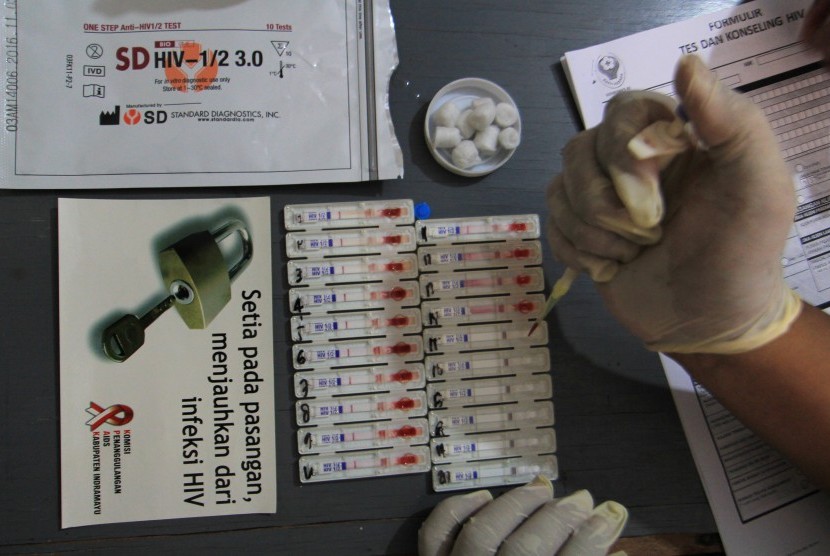REPUBLIKA.CO.ID, YOGYAKARTA -- The number of people living with HIV/AIDS among men who have sex with men (MSM) is estimated to reach 153,771 in 2016, an increase of 225 percent from 68,175 in 2011. "The HIV/AIDS prevalence among MSM jumped by 225 percent within five years, which is a scary number," Pattrick Wauran, a public policy observer of the University of Indonesia, said on the sidelines of a function to observe World AIDs Day in Jakarta on Thursday.
The number of people with HIV/AIDs infected through drug injections decreased from 28,944 in 2011 to 21,559 in 2016. Overall, the number of people with HIV/AIDs increased from 545,428 in 2011 to 785,821 in 2016.
The government should make breakthroughs and issue regulations to minimize MSM and other sexual deviation behaviors, as well as to prevent unprotected sex, particularly among commercial sex workers.
The theme of World AIDs Day this year is "Hands Up For #HIVPrevention."
HIV prevention is key to ending the AIDS epidemic among young women, and the cycle of HIV infection needs to be broken.
Globally, between 2010 and 2015, the number of new HIV infections among young women aged between 15 and 24 years was reduced by just 6%, from 420 thousand to 390 thousand. To reach the target of less than 100 thousand new HIV infections among adolescent girls and young women by 2020, a 74% reduction is required within four years between 2016 and 2020.
In 2014, an estimated 45% of all new HIV infections globally were among members of key populations and their sexual partners. The report warns that new HIV infections continue to rise among people who inject drugs (by 36% from 2010 to 2015) and among gay men and other MSM (by 12% from 2010 to 2015) and are not declining among sex workers or transgender people.


